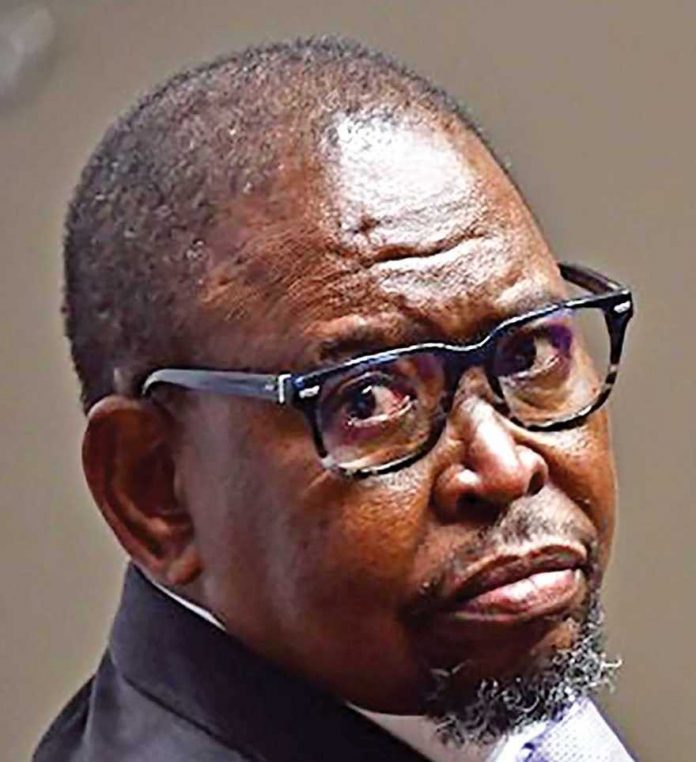South Africa finds itself at a critical juncture, grappling with a host of complex and deeply-rooted challenges that threaten the nation’s stability and prosperity.
In the past years slow economic growth, staggering unemployment rates, persistent poverty, and rampant power cuts have continued to trouble the nation, killing the dreams of many.
As the country eagerly awaits Finance Minister Enoch Godongwana’s medium-term budget policy statement to be delivered at the National Assembly on Wednesday, the pressure is mounting for action to address these pressing issues.
The opposition party, DA, has proposed a budget plan emphasising the need for substantial reforms to rejuvenate the nation’s economy.
Energy crisis and loadshedding
Recently, the country has seen a decrease in the occurrence of loadshedding, with Electricity Minister Kgosientsho Ramokgopa remaining optimistic about a permanent solution.
However, Eskom announced the return of power cuts from Sunday evening despite the Ramokgopa confirming that plans that have been put in motion to tackle the country’s longstanding energy crisis have begun to pay off.
The country is currently on stage-three loadshedding.
According to DA MP Dion George, these power cuts, which have persisted for several years, have had a negative impact on the country’s economic growth.
The opposition is calling for the unbundling of Eskom and the opening of the energy sector to independent power producers to ensure a sustainable energy supply.
George emphasised that these proposed reforms aim to prevent further economic stagnation and encourage growth.
“Throughout 2023 South Africa has seen unprecedented blackouts. The instability of the energy supply in tandem with a volatile political climate has had a severely detrimental impact on the advancement of South Africa.
“By maintaining its monopoly over the energy sector, the government has subjected every South African, with the notable exception of cabinet members, to an exploitative energy regime that enforces controlled blackouts at will and crushes economic growth.
“By opening the energy sector, innovation and voluntary action will keep the lights on and the wheels of the economy moving towards the growth rate needed to address declining economic participation,” said George.
Rising crime and corruption
South Africa’s crime problem is a growing concern.
George underscored that the country has found itself ranked seventh globally for organised crime syndicates.
He said the wearing down of law-enforcement agencies has allowed organised crime to flourish, threatening various sectors of the economy.
“Government’s proclaimed commitment to bolster institutions responsible for combating crime, such as the National Prosecuting Authority, the Special Investigating Unit, and the Financial Intelligence Centre, has yet to be fully realised in terms of financial allocation.
“Despite the unresolved state capture crisis and the critical role these institutions play in addressing corruption and other specialised and organised crimes, the 2023 February Budget, much like previous budgets, has not provided significant relief to these perennially underfunded agencies.”
In February, the Financial Action Task Force (FATF), an international financial crime watchdog, added South Africa and Nigeria to its list of grey-listed countries over poor anti-terrorism and money-laundering controls.
South Africa has been a member of the FATF, which is tasked with combating money-laundering and the financing of terrorism across national borders, since 2003.
In 2021, the FATF published its mutual evaluation report highlighting vulnerabilities in the country’s anti-money-laundering system.
Delivering his Budget Speech this year, Godongwana said the country has made substantial progress in addressing these weaknesses.
However, he warned that the country still needs to prepare for the worst.
During a plenary in Paris, the FATF confirmed that South Africa has indeed made progress on recommended actions to improve its systems.
South Africa remains under monitoring
However, the financial crime watchdog said the country will remain under monitoring.
This, according to George, has diminished the country’s credibility.
“The announcement of South Africa’s grey-listing underscored our eroding credibility as an emerging market that is plagued by regulatory lapses and corrupt activity.
“Our grey-listing has further signalled to the global economy that South Africa lacks the capability and determination to effectively address systemic organised crime and high-level corruption.
“[This also] serves as a warning to international market participants of the potential risks associated with engaging in transactions with South African companies and individuals.”




